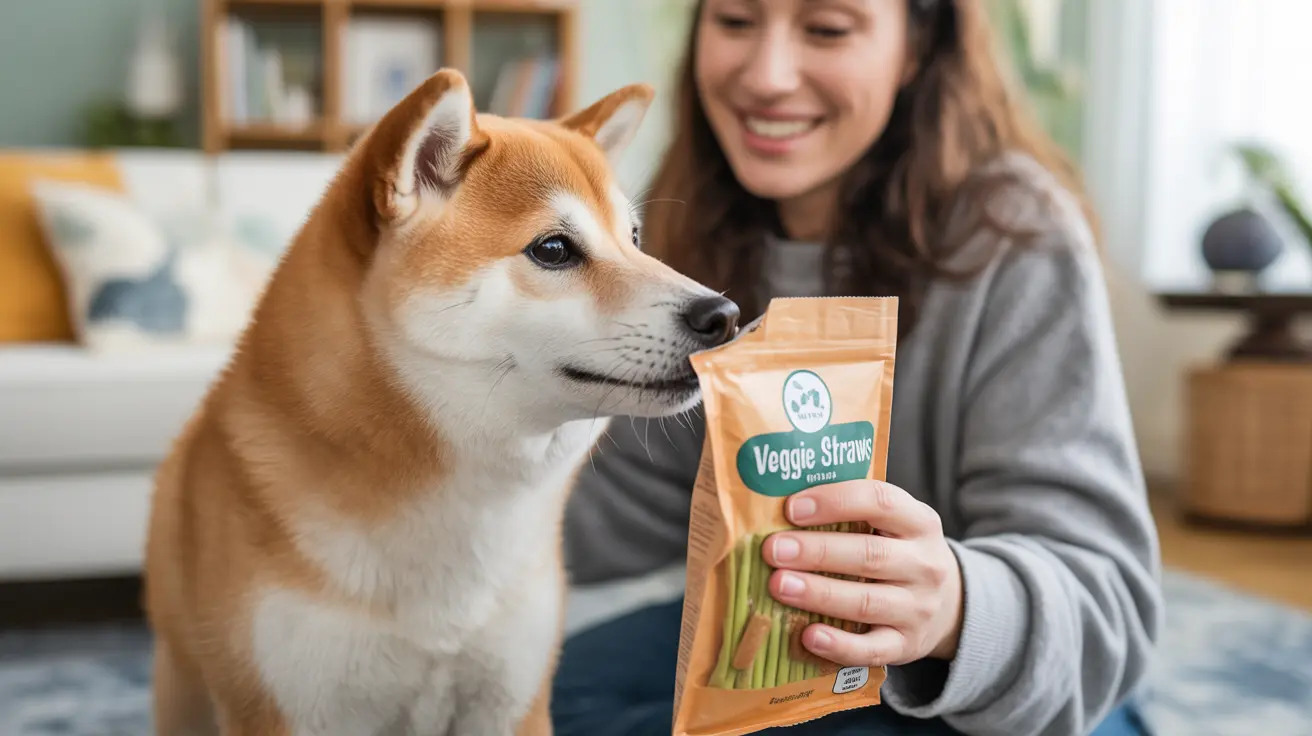As pet owners increasingly share their snacks with their furry friends, many wonder about the safety of veggie straws for dogs. While these popular snacks might seem like a healthier alternative to potato chips for humans, they present several concerns when it comes to canine consumption.
Understanding the risks and potential consequences of feeding veggie straws to dogs is crucial for responsible pet ownership. Let's explore why these seemingly innocent snacks might not be the best choice for your four-legged companion.
Understanding Veggie Straws' Composition
Despite their vegetable-inspired name, veggie straws are highly processed snacks primarily made from potato starch, potato flour, and vegetable powders. They contain significant amounts of salt, oils, and artificial additives that can be problematic for dogs.
- Potato starch and flour
- Vegetable powders (spinach, beetroot, tomato)
- Canola or sunflower oil
- Added salt and sugar
- Artificial colors and flavors
Health Risks of Veggie Straws for Dogs
The consumption of veggie straws can pose several health risks to dogs, particularly when eaten regularly or in large quantities:
High Salt Content Dangers
Excessive sodium intake can lead to salt poisoning in dogs, causing symptoms such as:
- Extreme thirst
- Frequent urination
- Vomiting and diarrhea
- Tremors or seizures
- Potential kidney damage
Fat-Related Concerns
The high fat content in veggie straws can trigger serious health issues:
- Pancreatitis
- Obesity
- Digestive upset
- Long-term metabolic problems
What Happens If Your Dog Eats Veggie Straws?
If your dog consumes veggie straws, the severity of the situation depends on the amount eaten and your dog's size. A single veggie straw likely won't cause serious harm, but larger quantities warrant closer monitoring.
Monitor your dog for these symptoms:
- Excessive thirst
- Vomiting or diarrhea
- Lethargy
- Abdominal discomfort
- Changes in behavior
Safe Alternatives to Veggie Straws
Instead of veggie straws, consider these healthy alternatives for your dog:
- Fresh carrot sticks
- Green beans
- Apple slices (without seeds)
- Cucumber pieces
- Commercial dog treats designed for canine nutrition
Prevention and Best Practices
To protect your dog from accidental veggie straw consumption:
- Store snacks in sealed containers out of reach
- Train your dog to avoid human food
- Keep garbage bins secured
- Educate family members about safe dog treats
Frequently Asked Questions
Can dogs have veggie straws safely?
No, veggie straws are not safe for regular dog consumption due to their high salt content, artificial ingredients, and processed nature.
What are the health risks if my dog eats veggie straws?
The main risks include salt toxicity, pancreatitis, digestive issues, and potential complications from artificial ingredients or harmful seasonings.
How do I prevent accidental ingestion of veggie straws by my dog?
Store snacks in secure containers, keep food out of reach, and maintain consistent training to prevent your dog from eating human food.
What are some safe snack alternatives to veggie straws for dogs?
Safe alternatives include fresh carrots, green beans, apple slices (without seeds), and specially formulated dog treats.
What should I do if my dog accidentally eats a veggie straw?
Monitor your dog for unusual symptoms. If they've eaten just one or two, they'll likely be fine. For larger quantities or if symptoms develop, contact your veterinarian.
Remember, while sharing snacks with our pets can be tempting, it's always best to stick to foods specifically formulated for dogs or vet-approved healthy alternatives. Your dog's health and safety should always come first.






